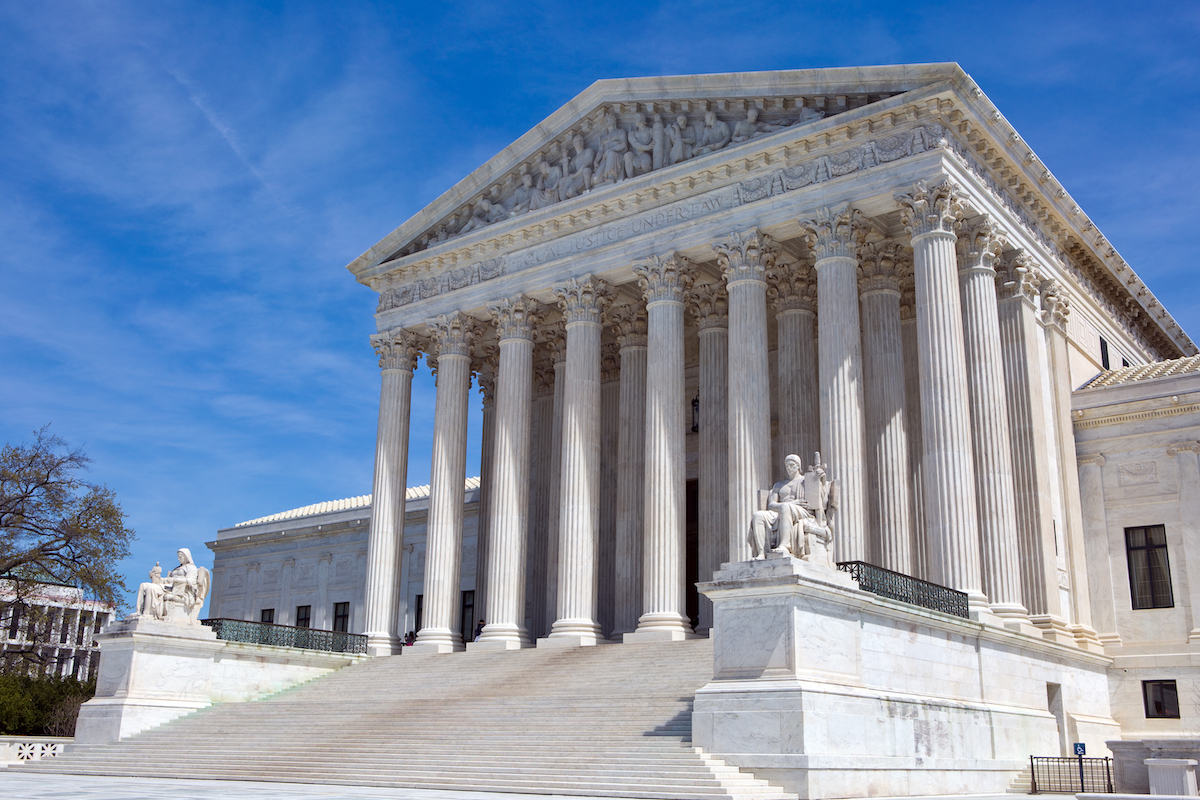Supreme Court Reinstates Trump-Era Clean Water Rule
(Reuters) — In a 5-4 split, the U.S. Supreme Court on Wednesday temporarily revived a Trump-era rule intended to fast-track big energy projects by limiting the states' power to curtail them under the Clean Water Act.
The majority voted to block the effect of an October ruling that vacated the 2020 rule while industry groups, Louisiana and seven other Republican-led states appeal that ruling, and if either side seeks review by the Supreme Court.
The majority gave no reasons for granting the application filed on its emergency docket — often called the shadow docket because the cases are decided with minimal briefing, no arguments and no explanation.
Justice Elena Kagan, joined in her dissent by Chief Justice John Roberts and Justices Stephen Breyer and Sonia Sotomayor, said the case did not belong on the emergency docket because the petitioners had not identified any threat of immediate harm. By granting relief anyway, the majority “signals its view of the merits” and “renders the Court’s emergency docket not for emergencies at all,” Kagan wrote.
The legal dispute stems from changes the Environmental Protection Agency made in July 2020 to its interpretation of Section 401 of the Clean Water Act, which gives states and eligible Tribes some power over interstate pipelines, coal terminals, and other federally licensed projects affecting waterways and wetlands in their jurisdictions.
The 2020 revision made it impossible for states to block projects for any reason other than direct pollution into state waters. Some states had previously weighed other factors, such as climate change.
Two coalitions of environmental groups and Tribes and about two dozen Democrat-led states filed suit to vacate the 2020 change. U.S. District Judge William Alsup in San Francisco agreed with them last October, leading the industry groups and eight states to appeal to the 9th U.S. Circuit Court of Appeals.
Meanwhile, the EPA had already started work on a revision that it expects to finalize in 2023. Its attorneys at the Justice Department did not immediately respond to requests for comment on Wednesday.
Louisiana Attorney General Jeff Landry, the American Petroleum Institute, the Interstate National Gas Association of America, and the National Hydropower Association all praised the Supreme Court’s action, saying it will ensure that critical energy projects can move forward without needless delay.
However, the challengers’ attorneys from Earthjustice, Sierra Club, and Western Environmental Law Center decried Wednesday’s order and vowed to keep fighting for local control of local water supplies.
“Regardless of the ultimate outcome of this litigation, EPA must act quickly to finalize a substitute rule that restores states’ and Tribes’ authority,” the Sierra Club’s attorney Nathan Matthews said.
The case is Louisiana et al. v. American Rivers, et al., U.S. Supreme Court Application, No. 21A539.
Related News
Related News

- Keystone Oil Pipeline Resumes Operations After Temporary Shutdown
- Freeport LNG Plant Runs Near Zero Consumption for Fifth Day
- Biden Administration Buys Oil for Emergency Reserve Above Target Price
- Mexico Seizes Air Liquide's Hydrogen Plant at Pemex Refinery
- Enbridge to Invest $500 Million in Pipeline Assets, Including Expansion of 850-Mile Gray Oak Pipeline
- Enbridge Receives Approval to Begin Service on Louisiana Venice Gas Pipeline Project
- U.S. to Acquire 3 Million Barrels of Oil for Emergency Reserve in September
- AG&P LNG Acquires 49% Stake in Vietnam's Cai Mep LNG Terminal
- BP's Carbon Emissions Increase in 2023, Ending Decline Since 2019
- Texas Sues EPA Over Methane Emission Rules for Oil and Gas Sector





Comments